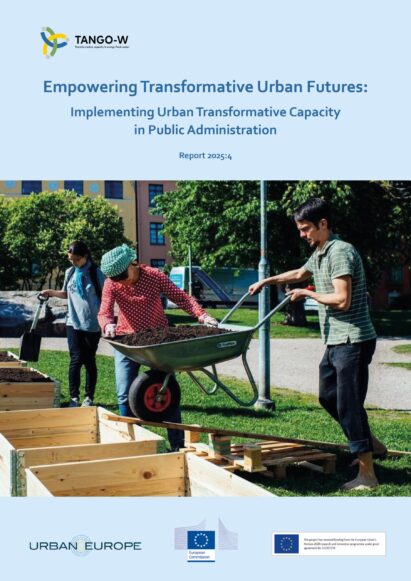This report offers 12 key policy messages designed to drive urban transformation at the local level. Drawing on lessons learned within the seven Urban Living Labs (ULLs) in the TANGO-W project, these recommendations equip policymakers with actionable strategies to tackle contemporary challenges facing European cities. The policy messages in this report are organised according to the three key areas of urban sustainability transitions approach: structures, practices, and relationships.
Policy messages concerning STRUCTURES focus on how public organisations can be configured to foster innovation and effectively address contemporary challenges. These recommendations are connected to system awareness and memory, collaboration across various agency levels, and coordination between political and administrative . The goal of these structural policy messages is to empower local entities to lead and drive change.
Policy messages on PRACTICES shed light on how public organisations can develop, implement and sustain the necessary skills, resources, capabilities, and routines to effectively tackle contemporary challenges. Practices encompass UTC components such as learning and reflexivity, transformative leadership, sustainability foresight, and the integration of innovative practices into everyday routines. They focus on innovative working methods that facilitate the translation of broad environmental and societal goals into actionable local practices and projects. Moreover, these practices support the assessment and reflection on the progress of initiatives, fostering the generation of new knowledge.
Policy messages concerning RELATIONSHIPS focus on collaborative connections with external stakeholders that are facilitated by innovative structures and practices. These relationships are key to fostering inclusive and multifaceted urban governance, empowering communities of practice, and experimenting with disruptive solutions. Such capacities highlight the importance of inclusive and adaptive governance, engaging a diverse range of stakeholders from various sectors in the decision-making process.







